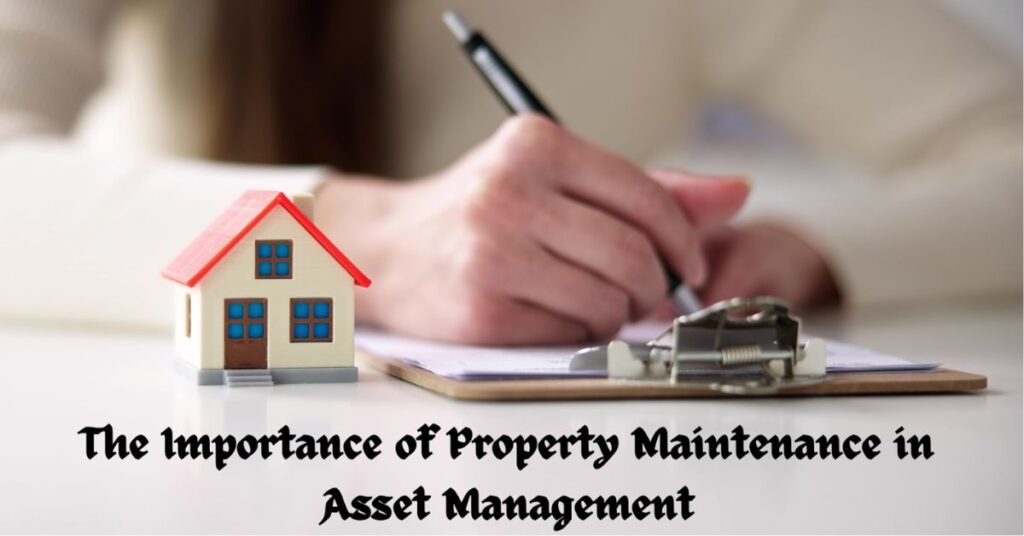Property maintenance is the backbone of successful property ownership and management. From routine cleaning to essential repairs, these tasks ensure your property stays in top condition. However, maintenance isn’t just about appearances; it’s a key factor in preserving the property’s long-term value and keeping tenants happy and safe.
This blog highlights why consistent Property Management company matters and how professional services can make a world of difference, whether you’re a property owner or manager.
Understanding Property Maintenance
Property maintenance goes beyond basic upkeep; it’s a comprehensive approach to preserving and enhancing the value, safety, and functionality of your investment. From simple tasks like landscaping and cleaning to more intricate repairs such as plumbing and electrical system checks, regular maintenance ensures the property remains in peak condition.
Many property managers use asset management in excel to track and manage their assets, a method that can work well for smaller portfolios. As the number of assets increases, transitioning to specialized property management software can further enhance efficiency, improve tracking accuracy, and help maintain optimal maintenance practices. This upgrade supports streamlined processes and ensures a more seamless management experience.
Whether you’re managing a single-family home or a commercial property, maintenance isn’t just about fixing what’s broken; it’s about preventing problems before they arise, protecting the asset’s long-term value, and creating a positive experience for tenants.
Enhancing Long-Term Property Value Through Regular Maintenance
Property managers face a crucial choice: wait for problems to occur or prevent them from happening. Proactive maintenance offers a significant return on investment, which is why forward-thinking property managers are shifting away from reactive approaches.
Preventative Measures That Matter
Regular maintenance isn’t just about immediate savings—it’s about protecting your property’s future. Key preventative measures include:
- Quarterly HVAC system inspections and filter replacements
- Annual roof inspections and maintenance
- Monthly plumbing system checks
- Regular electrical system audits
- Seasonal exterior maintenance
These routine checks can help prevent repair costs from escalating, making them essential for sustaining and enhancing property value.
The Real Cost of Depreciation
Well-maintained properties tend to appreciate over time, while neglected properties often experience depreciation. The difference in property value trajectory can mean significant financial losses over the years, underscoring the importance of consistent, proactive maintenance in safeguarding your investment.
Reducing Operational Costs and Maximizing ROI
Proactive property maintenance offers significant financial benefits by reducing the reliance on costly emergency repairs. Rather than waiting for problems to escalate, routine inspections and upkeep address minor issues before they become major expenses. This approach lowers overall maintenance costs and extends the lifespan of key systems, reducing the need for expensive replacements.
In addition to cost savings, regular maintenance improves energy efficiency, reducing utility costs by ensuring that HVAC, plumbing, and electrical systems are running optimally. It also enhances tenant retention, as well-maintained properties tend to have fewer issues, leading to higher tenant satisfaction.
In a well-managed facility, the tenants stay, and as such, the turnovers are lowered, translating into high incomes for the rental of such properties. Generally speaking, proactive maintenance serves to protect both the financial health of the property and the satisfaction of the tenants in that process.
Legal and Regulatory Compliance
Property maintenance is not only an operational need but also, in many instances, a legal requirement. Proper compliance with building codes, health and safety regulations, environmental standards, accessibility requirements, and fire safety codes will help avoid legal consequences. Regular maintenance reduces the risk of personal injury claims, property damage lawsuits, and regulatory fines, saving property owners from potential liabilities.
Additionally, well-managed properties will not face potential claim denials from insurance providers due to compliance with minimum coverage limits. There can also be a cut on insurance premiums, along with improving the terms of insurance and lowering deductibles with higher efficiencies of claims processing. Conclusively, consistent maintenance is not only legally compliance-friendly but also reinforces risk management, reputation protection, and better insurance terms for owners.
Smart Technology and Data Analytics in Property Maintenance
The growth in the adoption of IoT solutions has transformed property maintenance into a series of smart technologies that further improve efficiency and decision-making. These systems allow real-time monitoring of key property functions and thus enable property managers to identify issues before they escalate.
Predictive maintenance notifications and automation of scheduling will ensure timely maintenance to reduce reactive repairs. Moreover, energy usage optimization and remote system control will further empower property managers to reduce operational costs and improve sustainability.
Predictive analytics give property managers better ways of scheduling maintenance, cost optimization, and performance trend analysis to inform decisions. Automation streamlines processes by cutting response times, raising the completion rate of work orders, and reducing administrative overhead—in short, it smooths out the entire process.
Sustainability and Environmental Considerations
Sustainable maintenance practices are key to reducing environmental impact and cutting costs. Some of the main eco-friendly approaches include:
- Upgrading to energy-efficient equipment
- Implementing water conservation measures
- Using sustainable cleaning products
- Adopting waste reduction programs
These practices are good for the environment and offer a number of advantages to property owners. Energy-efficient systems reduce operating costs and boost tenant satisfaction, ultimately increasing property values.
Green’ properties tend to be in better compliance with environmental regulations and attract tenants who will look after and care for the property. By going green, properties become more marketable and future-proof, all while benefiting the bottom line.
Comparative Analysis: Maintenance Approaches
| Aspect | Reactive Maintenance | Preventative Maintenance |
| Cost Impact | Higher long-term costs | Lower overall expenses |
| Property Value | Faster depreciation | Steady appreciation |
| Tenant Satisfaction | Lower | Higher |
| Legal Risk | Increased | Reduced |
| Energy Efficiency | Poor | Optimal |
| Equipment Lifespan | Shortened | Extended |
| ROI | Lower | Higher |
Frequently Asked Questions
What is asset management for maintenance?
Maintenance asset management concerns itself with the condition, performance, and lifecycle of the property assets, ensuring they are timely maintained and reducing the chances of their downtime while adding value to them over the time period.
What is the objective of property maintenance?
Property maintenance is intended to protect and enhance the value of a property while ensuring safety and comfort for tenants, reducing repair costs, and meeting the requirements of the law by way of proactive maintenance and repairs.
Why is asset information important in terms of maintenance management?
Accurate information about the assets allows maintenance management to be effective through prioritizing repairs, optimizing schedules, tracking the asset lifecycle, reducing costs, and maintaining regulatory requirements to achieve improved overall operational efficiency.
Wrapping Up
Maintenance of property is the key to achieving continued success and asset preservation. By embracing proactive maintenance, leveraging smart technologies, and prioritizing sustainability, property managers can lower costs, improve tenant satisfaction, and better preserve property value. Regular maintenance not only helps in operational efficiency but also ensures compliance and reduces risks, giving higher returns to secure future performance for your real estate investment.







